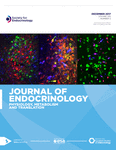Modeling the impact of growth and leptin deficits on the neuronal regulation of blood pressure
- Stead Family Department of Pediatrics, Carver College of Medicine, University of Iowa, Iowa City, Iowa, USA
- Correspondence should be addressed to R Roghair; Email: robert-roghair{at}uiowa.edu
Abstract
The risk of hypertension is increased by intrauterine growth restriction (IUGR) and preterm birth. In the search for modifiable etiologies for this life-threatening cardiovascular morbidity, a number of pathways have been investigated, including excessive glucocorticoid exposure, nutritional deficiency and aberration in sex hormone levels. As a neurotrophic hormone that is intimately involved in the cardiovascular regulation and whose levels are influenced by glucocorticoids, nutritional status and sex hormones, leptin has emerged as a putative etiologic and thus a therapeutic agent. As a product of maternal and late fetal adipocytes and the placenta, circulating leptin typically surges late in gestation and declines after delivery until the infant consumes sufficient leptin-containing breast milk or accrues sufficient leptin-secreting adipose tissue to reestablish the circulating levels. The leptin deficiency seen in IUGR infants is a multifactorial manifestation of placental insufficiency, exaggerated glucocorticoid exposure and fetal adipose deficit. The preterm infant suffers from the same cascade of events, including separation from the placenta, antenatal steroid exposure and persistently underdeveloped adipose depots. Preterm infants remain leptin deficient beyond term gestation, rendering them susceptible to neurodevelopmental impairment and subsequent cardiovascular dysregulation. This pathologic pathway is efficiently modeled by placing neonatal mice into atypically large litters, thereby recapitulating the perinatal growth restriction–adult hypertension phenotype. In this model, neonatal leptin supplementation restores the physiologic leptin surge, attenuates the leptin-triggered sympathetic activation in adulthood and prevents leptin- or stress-evoked hypertension. Further pathway interrogation and clinical translation are needed to fully test the therapeutic potential of perinatal leptin supplementation.
- Received 12 August 2016
- Accepted 8 September 2016
- Made available online as an Accepted Preprint 9 September 2016
- © 2016 Society for Endocrinology











